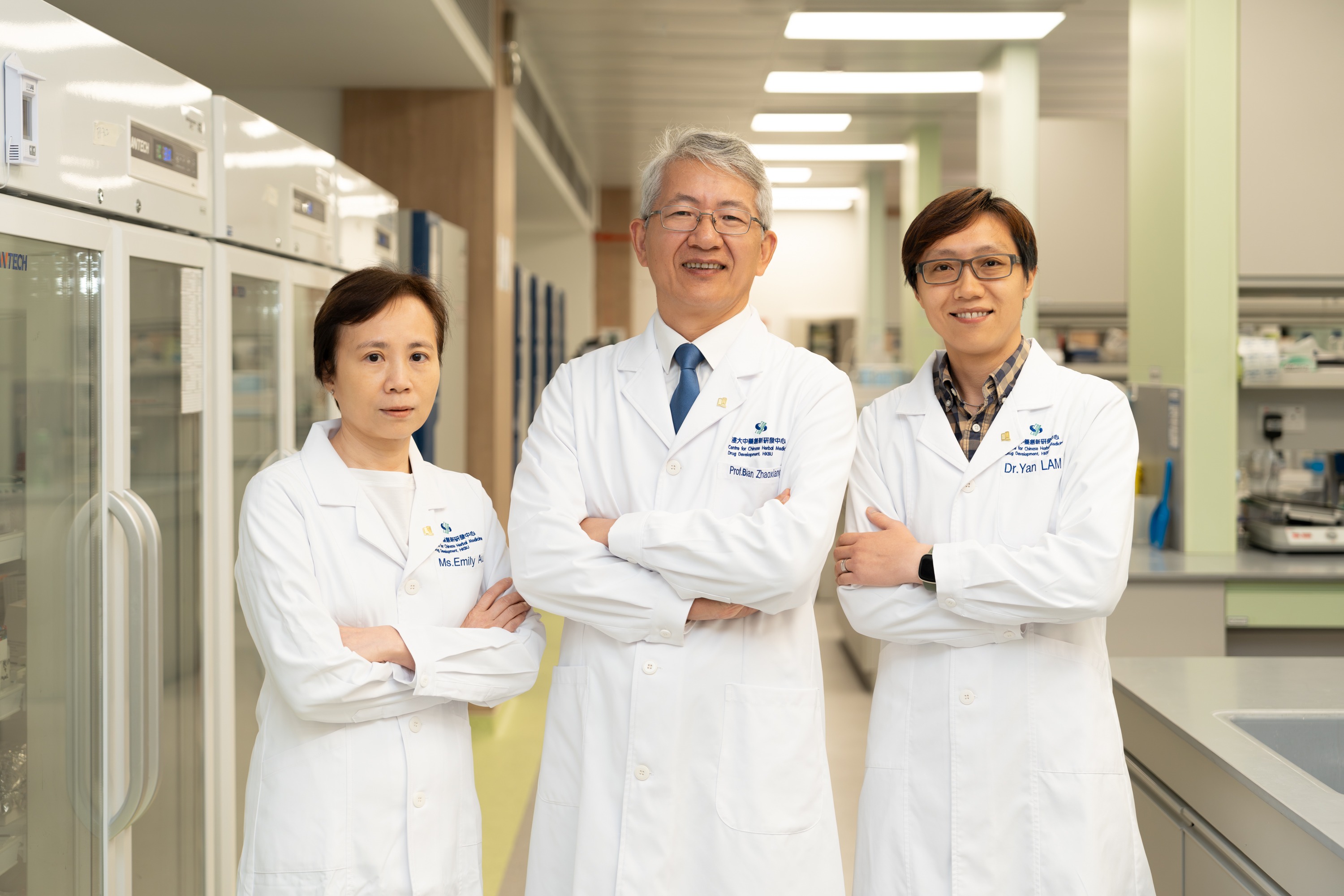Discover HKBU
Novel Chinese medicine authorised by U.S. FDA for clinical trial
25 Jul 2023
HKBU's Centre for Chinese Herbal Medicine Drug Development (CDD) has developed Chinese medicine for chronic constipation treatment, with success in the Investigational New Drug Application to the U.S. Food and Drug Administration to conduct a phase I clinical trial, for testing the safety, tolerability, and pharmacokinetics of the drug on healthy individuals.
This is the first time that a new botanical drug developed in Hong Kong was authorised for conducting a clinical trial in the US, marking a great step forward in the standardisation and internationalisation of Chinese medicine.
Research based on traditional Chinese herbal formulation
Chronic constipation is a common gastrointestinal disorder affecting approximately 14% of the global population, and many patients with the condition are not completely satisfied with their current treatments due to side effects and/or limited efficacy. In response to the patients’ needs for better therapeutics, CDD has been eyeing the international market and has developed a new drug called CDD-2101, which is based on previous pilot clinical studies and basic research on the traditional Chinese herbal formulation “MaZiRenWan”.
The main ingredients of CDD-2101 include hemp seed, rhubarb, officinal magnolia bark, bitter apricot seed, bran stir-fried immature orange fruit, and white peony root. The HKBU research team collaborated with partners including the University of Chicago and the University of Macau to submit an Investigational New Drug Application for CDD-2101 according to the requirements for botanical drug development of the U.S. FDA and was authorised to conduct a phase I clinical trial.


Milestone of standardisation and internationalisation of Chinese medicine
Professor Bian Zhaoxiang, Associate Vice-President (Chinese Medicine Development), Director of the Clinical Division of the School of Chinese Medicine, and Director of the CDD at HKBU, says: “CDD-2101 is a novel drug developed by combining a traditional Chinese herbal formulation and advanced technologies, with research and manufacturing conducted in compliance with international standards. Obtaining U.S. FDA’s authorisation to conduct a clinical trial for this new drug is an important milestone in the development of Chinese medicine in Hong Kong, and it reflects HKBU’s capabilities in and dedication to promoting the standardisation and internationalisation of Chinese medicine.”
The phase I clinical trial is expected to be completed in 2024, followed by a phase II study to collect the safety and efficacy data from patients with chronic constipation. A large-scale phase III study will then be launched to further evaluate the treatment efficacy of CDD-2101 in patients with chronic constipation, and monitor any unforeseeable side effects.
Professor Bian says: “The ultimate goal of the drug development programme is to collect sufficient safety and efficacy data, so that CDD-2101 can be evaluated and approved by the U.S. FDA as a new pharmaceutical for sale and marketing in the US. This is essential in establishing CDD-2101 as an internationally recognised, safe and effective drug for the treatment of chronic constipation. It is anticipated that another three to five years are needed to complete the phase II and III clinical trials, after which the data gathered during the animal studies and human clinical trials, together with details of the manufacturing of the drug, will be included in a New Drug Application to be submitted to the U.S. FDA for review.”